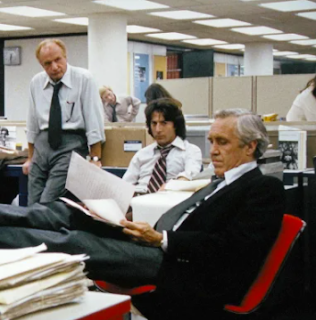Occupations differ in so many ways, and often we don’t recognize these differences. I recently discussed the emphasis on precision and process in the Singapore educational system and made the point that the job market for nuclear plant operators is limited. Nuclear plant operation is an occupation that demands precision because mistakes are exceedingly costly, but there is no benefit in that occupation from other kinds of excellence. Other occupations require attention and stamina – think of truck drivers. Yet other occupations require investments in energy and devotion that go far beyond what most people will provide – think of orchestra musicians, and of journalists. People in such occupations often refer to their work as a calling.
When an occupation that requires a calling goes into dramatic change and even decline, what happens to the people in it? Journalism is currently in such a period, and research by Winnie Yun Jiang and Amy Wrzesniewski published in Administrative Science Quarterly has documented the effects on individual journalists. It is sad reading but provides important understanding.Journalism is threatened from all sides by digitalization. A good
journalist is now someone who generates a lot of clicks on their online
article. A good journalist is someone who can compete effectively with the
social media types, who specialize in attracting clicks to media with very
little content. A good journalist is someone who can accept low pay. After all,
why should newspapers pay well when their business is to generate clicks to content
pages that drop preference cookies and show advertising content?
Journalists confront these changes at every turn. Many lose their jobs,
and some quit. Some try to find work that matches their skills, and others try
to find work that matches their values (not necessarily the same thing). The
problem is that when an occupation is a calling, it can be difficult to
reinterpret work. When someone is forced to leave such an occupation, it can be
painful – perhaps impossible – to reorient oneself as a worker. Some people
find ways to move forward by specializing in some of the skills they have
developed in that occupation. Others find that being asked to give up their
focus on other skills, and to abandon the values that propelled them to seek
that career, is simply too difficult, both in the thinking and the emotion.
Facing such threats, journalists are divided: some reinvent their
careers by searching for meaning in new occupations, and others cannot find
that meaning outside of journalism and thus face a truly unsolvable dilemma. What
unites them is the sadness of realizing that their future will be different
from their past and, in important ways, will be worse. For all of us who love
meaningful careers in general, and journalism specifically, this is a painful
story of coping and adaptation.
